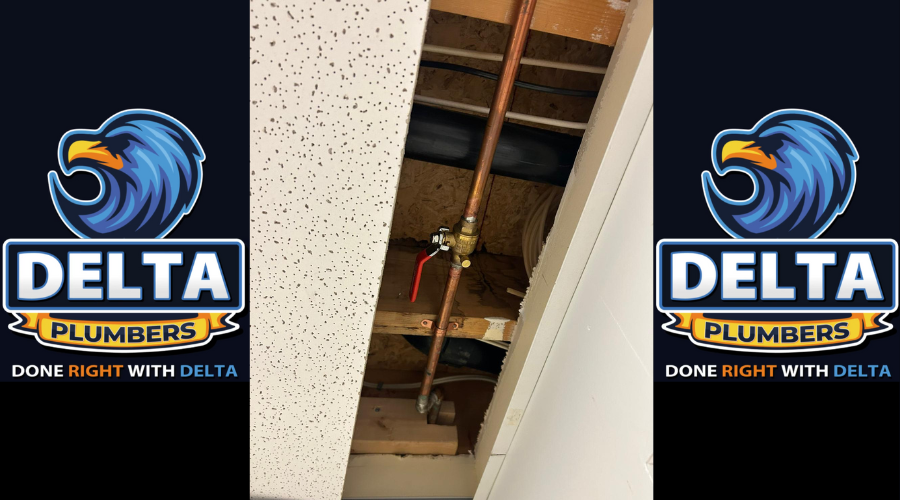Plumbing codes and regulations are essential components of ensuring safe, efficient, and reliable plumbing systems in homes and businesses. These codes are designed to protect public health, prevent water contamination, and ensure that plumbing systems are installed and maintained correctly. However, navigating through the complexities of plumbing regulations can be a challenge for homeowners, contractors, and even seasoned plumbers. From local building codes to national standards, understanding these rules is crucial for avoiding costly mistakes, ensuring compliance, and promoting the longevity of plumbing systems. In this guide, we’ll break down the key plumbing codes and regulations, providing you with everything you need to know to stay informed and ensure your plumbing meets the required standards.

Picture Source – Delta Plumbers
What plumbing code is used in Canada?
Canada follows the National Plumbing Code of Canada (NPC) as the foundational document that sets out the standards for the design, installation, and maintenance of plumbing systems. Published by the Canadian Commission on Building and Fire Codes (CCBFC), this code ensures safety, reliability, and efficiency in plumbing systems across the country.
The NPC outlines requirements for water supply, wastewater disposal, and plumbing fixtures. It is updated every five years to incorporate technological advancements and address emerging safety concerns. Each province and territory can adopt and adapt the NPC, adding specific amendments to suit regional needs. For example, Ontario and British Columbia often include additional requirements related to environmental sustainability and energy efficiency.
Compliance with the NPC is essential for licensed plumbers to avoid legal issues and ensure customer safety. At Delta Plumbers, we adhere to the latest standards of the NPC to deliver reliable and code-compliant services to our clients. By following these guidelines, we ensure that every project is completed to the highest safety and performance standards, providing customers with peace of mind and long-lasting solutions.
Also Read: DIY Plumbing vs. Hiring a Professional: The Pros and Cons

Picture Source – Delta Plumbers
What plumbing code does Ontario use?
Ontario primarily follows the Ontario Building Code (OBC), which includes specific provisions related to plumbing. The plumbing section of the OBC aligns with the National Plumbing Code but includes modifications to address Ontario’s unique climatic, environmental, and urban conditions.
The OBC provides detailed guidelines on water distribution, drainage, venting, and fixture installations. For instance, it specifies pipe diameters, materials, and insulation requirements to prevent freezing in Ontario’s cold winters. Additionally, it incorporates water conservation measures, such as low-flow fixtures and rainwater harvesting systems. These measures not only ensure safety and compliance but also promote sustainable practices that benefit the environment and reduce water bills.
Delta Plumbers ensures compliance with the OBC in all projects. Our team stays updated on any changes to the code and integrates them into our practices, guaranteeing safe and efficient plumbing solutions for Ontario homeowners and businesses. Whether working on new constructions or retrofitting existing systems, we prioritize adherence to these regulations to deliver exceptional results.
Also Read: Install a Laundry Room Sink: The Process

Picture Source – Delta Plumbers
What is the oldest plumbing code?
The oldest documented plumbing code is the Uniform Plumbing Code (UPC), which was first published in 1945 by the International Association of Plumbing and Mechanical Officials (IAPMO). Although it originated in the United States, the UPC significantly influenced modern plumbing standards worldwide.
The UPC was designed to establish uniform standards for plumbing systems, focusing on public health and safety. It introduced basic guidelines for pipe materials, fixture spacing, and drainage systems. Over the decades, the UPC evolved to include more comprehensive regulations, paving the way for advanced codes like the NPC and OBC.
At Delta Plumbers, we recognize the historical significance of these early codes. By understanding their evolution, we appreciate the importance of adhering to contemporary standards that prioritize safety and sustainability. This awareness allows us to incorporate best practices from historical and modern perspectives, ensuring our services meet the highest standards.
Also Read: Professional Water Heater Maintenance

Picture Source – Delta Plumbers
How many fixture units on a 2-inch drain in Canada?
In Canada, the number of fixture units that a 2-inch drain can accommodate is determined by the National Plumbing Code. A 2-inch drain is typically rated to handle six to eight fixture units. Hence, the fixture units are a measure of the load imposed by plumbing fixtures on a drainage system.
For example:
- A standard sink may count as 1 fixture unit.
- A shower may count as 2 fixture units.
Factors such as pipe slope, venting, and the total system design also influence the capacity. Exceeding the recommended fixture units can lead to drainage issues, including clogs and backups. To prevent these problems, Delta Plumbers carefully calculates fixture units during installations. This attention to detail ensures that the system operates efficiently and complies with the NPC, protecting your home or business from future issues.
Also Read: Same-Day Kitchen Sink Installation

Picture Source – Delta Plumbers
What is the code for residential bathrooms in Canada?
The NPC and provincial codes like the OBC provide detailed guidelines for residential bathrooms. Key requirements include:
- Minimum Fixture Clearance: Toilets must have at least 30 inches of space in front and 15 inches on each side for accessibility. This ensures that bathrooms are functional and comfortable for users.
- Ventilation: Bathrooms must be equipped with an exhaust fan vented to the exterior to manage humidity and prevent mold growth. Proper ventilation also enhances indoor air quality and extends the lifespan of bathroom fixtures.
- Waterproofing: Floors and walls in wet areas must be waterproofed to prevent water damage. This is crucial in maintaining the structural integrity of a home and avoiding costly repairs.
- Plumbing Fixtures: Fixtures such as toilets, sinks, and showers must meet water efficiency standards. This not only conserves water but also reduces utility bills for homeowners.
- Trap Requirements: All fixtures must include a P-trap to prevent sewer gases from entering the home. This simple yet essential component ensures a healthy and odor-free environment.
Delta Plumbers specializes in bathroom installations and renovations that comply with these codes. Whether installing a new shower or upgrading fixtures, we ensure every detail meets regulatory standards while tailoring the design to meet our clients’ unique preferences and needs.
Also Read: How to Fix a Leaking Hose Bib: A Comprehensive Guide by Delta Plumbers

Picture Source – Delta Plumbers
Is PEX pipe to code?
Yes, PEX (cross-linked polyethylene) piping is to code in Canada and is widely used for water supply systems. The National Plumbing Code approves PEX for residential and commercial applications due to its flexibility, durability, and resistance to corrosion.
PEX offers several advantages, including easier installation compared to traditional materials like copper or PVC. It can withstand freezing temperatures without cracking, making it ideal for Canada’s climate. However, PEX installations must adhere to specific guidelines, such as:
- Proper support spacing to prevent sagging.
- Use of approved fittings and connectors.
- Avoiding direct exposure to UV light, which can degrade the material.
At Delta Plumbers, we use PEX for many projects, ensuring all installations meet NPC and OBC requirements for long-lasting and reliable plumbing systems. Our team is skilled in PEX installation, ensuring optimal performance and compliance with all relevant codes.
Also Read: Broken Garburators: A Complete Guide on How to Deal With

Picture Source – Delta Plumbers
What are the piping codes?
Piping codes establish standards for the materials, design, and installation of pipes in plumbing systems. In Canada, the National Plumbing Code and the Ontario Building Code outline the following piping requirements:
- Materials: Pipes must be made from approved materials such as copper, PVC, PEX, or CPVC, depending on the application. These materials are chosen for their durability, safety, and suitability for specific environments.
- Size and Capacity: Pipe diameters must accommodate the expected flow rates for water supply and drainage. Accurate sizing prevents issues such as low water pressure or slow drainage.
- Pressure Ratings: Pipes must withstand the operating pressure of the system. This ensures reliability and minimizes the risk of leaks or bursts.
- Slope Requirements: Drain pipes must maintain a minimum slope to ensure proper flow. This prevents blockages and promotes efficient drainage.
- Insulation: Pipes in unheated areas must be insulated to prevent freezing. This is particularly important in colder regions of Canada.
- Fire-Resistance: Certain installations require fire-resistant piping materials or enclosures to enhance safety.
Delta Plumbers adheres to all piping codes to provide safe and efficient systems. Moreover, our expert team ensures that every pipe, fitting, and connection is installed to meet regulatory standards and exceed customer expectations. From residential repairs to large-scale commercial projects, we prioritize quality and compliance to deliver superior results.
Conclusion
Understanding plumbing codes and regulations is essential for ensuring the safety, efficiency, and longevity of plumbing systems. At Delta Plumbers, we are committed to delivering services that meet the highest standards, guided by the National Plumbing Code, Ontario Building Code, and other relevant regulations. Therefore, by staying informed and compliant, we provide our clients with peace of mind and exceptional results. From installations to repairs, every project is approached with professionalism and precision, ensuring lasting value and customer satisfaction. Call us today for plumbing services.









